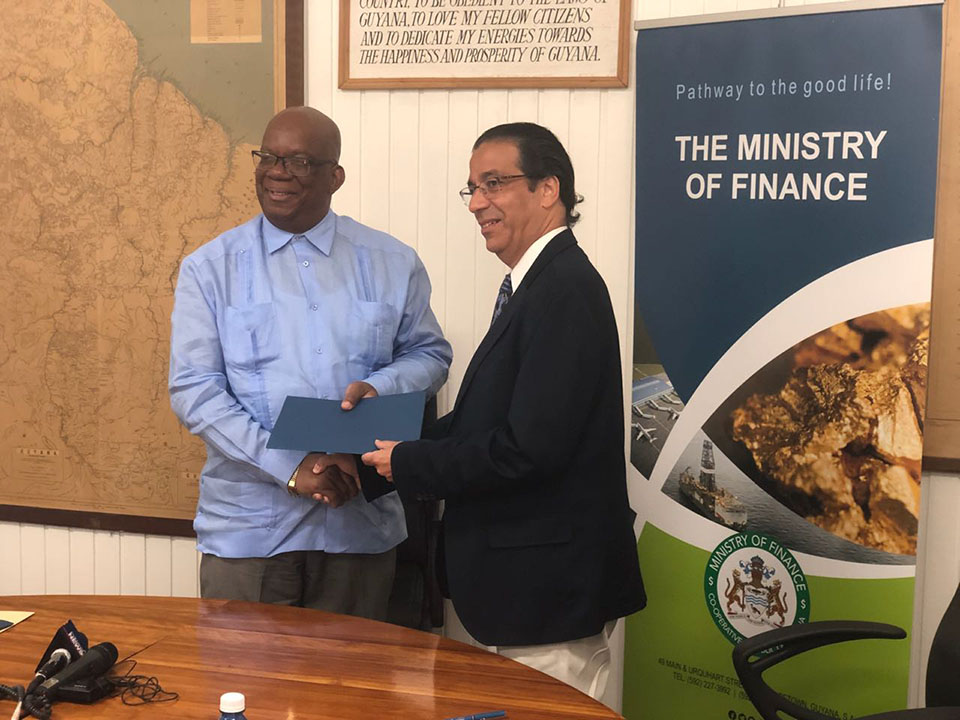The Ministry of Finance yesterday signed a US$35 million (almost $7.3 billion) policy-based loan agreement with the World Bank to support the modernisation of the country’s financial infrastructure.
According to the program document for the Programmatic Development Policy Credit (PDPC) Project, the series supports Guyana’s reform efforts to reinforce sound financial sector development and to strengthen fiscal management. It says the proposed operation is the first in a series of two operations building on three pillars of policy reforms. “The first pillar supports the Bank of Guyana’s (BOG’s) ability to manage financial stress including establishing a deposit insurance scheme. The second pillar supports both regulatory reform for the insurance sector as well as domestic and international payment transactions. The third pillar supports stronger fiscal management through a sovereign wealth fund (SWF) for intergenerational savings, better debt management, and improved public investment management,” it explains.
The PDPC, the document adds, forms part of a developing engagement with Guyana spanning financial sector, fiscal, and oil and gas sector management.
Speaking at the signing of the agreement yesterday at the ministry in Kingston, Georgetown, Finance Minister Winston Jordan stressed the importance of what the funding would put in place in Guyana, particularly in the financial sector.
“The World Bank has made available roughly US$90 million for us over the next two to three years. This roughly US$35 million is part of that facility. And we are also in the process of developing another facility that will specifically look at the oil and gas [sector]. This one is for support and this is one of two in this series and the next is under consideration,” Jordan also said.
He noted the ongoing efforts to modernise the country’s financial architecture, including the recent passage of four bills that were designed to complement what is being done.
“…These pieces of legislation that we have just passed are critical to modernising the infrastructure. In particular, legislation relating to the national payment system,” Jordan said.
He noted that the national payment system in a country like Guyana, where cash is used for most transactions, will ensure that over a period of five years or more there will be less dependence on physical cash as the sole means of transactions.
BoG Governor Dr. Gobind Ganga also explained that the national payment system that was in place was “very backward” and that the new law will provide for international best practices in relation to payment system intermediation and other aspects of ensuring that the economy has more efficient mechanisms for transactions. “We had a payment system which was under the Bank of Guyana. The role was given to us but we didn’t have the power, for example, to ensure that there was electronic payment. You can have digital signatures and stuff like that. This act recognises all of that and makes them legal. You had two aspects of this modernised payment system: to ensure that we have adequate legislation, which is now provided and the second thing is to provide the infrastructure to enable electronic payments,” Ganga explained.
World Bank Senior Country Officer Pierre Nadji also made brief remarks and noted that the loan was prepared in “record time.”
“I must also say that the latest legislative acts that were passed were passed at the right time for this agreement. And, really, this was a significant effort on the part of the government so we are pleased and looking forward to doing more of this and [to] help the Guyanese people to address the many challenges to reduce poverty,” Nadji said.










